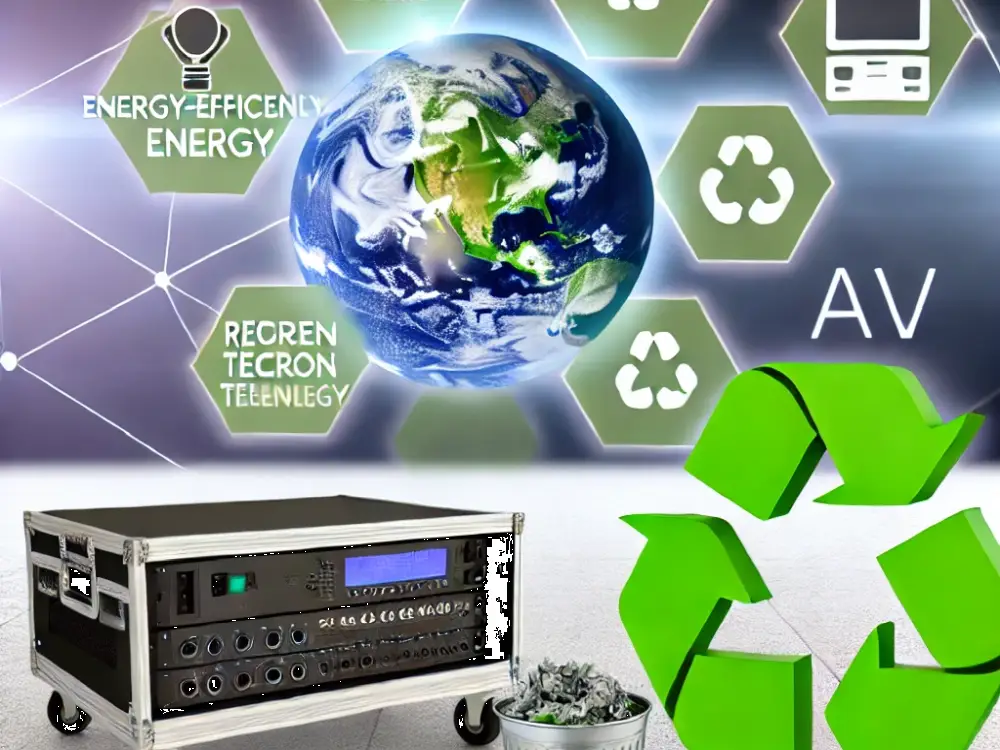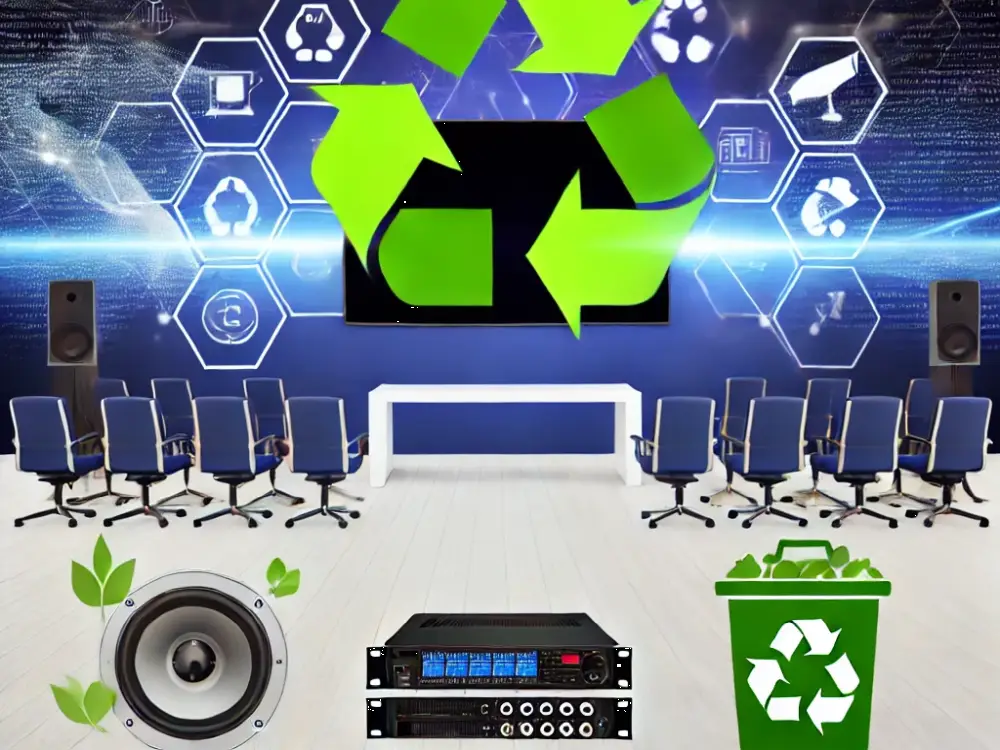Why Sustainability Should Be a Priority in the AV Industry
In recent years, sustainability has moved to the forefront of conversations in industries across the globe, and the audiovisual (AV) sector is no exception. As the demand for AV technologies grows, so too does the environmental footprint associated with producing, using, and disposing of these products. From reducing e-waste to implementing energy-efficient technologies, the AV industry is uniquely positioned to take meaningful steps toward sustainability. But why should sustainability be a priority for the AV sector? In this article, we explore the key reasons why embracing eco-friendly practices in AV is not only an ethical responsibility but also a smart business move.

1. Reducing Environmental Impact
One of the most compelling reasons to prioritize sustainability in the AV industry is the potential to significantly reduce environmental impact. The manufacturing, distribution, and operation of AV equipment often require substantial energy and resources, leading to a high carbon footprint. By adopting eco-friendly materials, energy-efficient designs, and recycling initiatives, companies in the AV sector can minimize waste and reduce their contribution to pollution.
In particular, the issue of electronic waste (e-waste) is a growing concern. AV products, like other electronics, have a limited lifespan and are frequently replaced as technology evolves. Without proper recycling programs in place, much of this waste ends up in landfills, where harmful chemicals can leach into the soil and water. By incorporating sustainability into the product lifecycle—starting from design and production to disposal—AV companies can play a significant role in reducing the environmental damage caused by e-waste.
2. Meeting Consumer Expectations
Consumers are becoming increasingly environmentally conscious, and businesses across all industries are feeling the pressure to align with these values. The AV industry is no exception. Today’s customers are more likely to support companies that demonstrate a commitment to sustainability, and they are actively seeking out products and services that minimize environmental harm.
By prioritizing sustainability, AV companies can differentiate themselves in a competitive market. Offering eco-friendly alternatives, such as energy-efficient displays or responsibly sourced materials, can help brands attract a growing segment of environmentally conscious consumers. Additionally, being transparent about sustainability efforts can build trust and strengthen customer loyalty, which is essential in maintaining long-term business success.

3. Improving Operational Efficiency
Sustainability is not just about reducing environmental harm—it’s also about improving business efficiency. Many sustainable practices, such as implementing energy-saving technologies or using durable, long-lasting materials, can result in cost savings over time. For example, energy-efficient AV equipment uses less power, which can lower energy bills for both manufacturers and end-users.
Furthermore, streamlining supply chains to minimize waste and reduce resource consumption can lead to more efficient operations. Sustainable practices often encourage innovation, pushing companies to rethink traditional processes and find more effective ways of doing business. This not only helps the environment but also enhances the company’s bottom line by reducing unnecessary costs.
4. Regulatory Compliance and Risk Management
As governments around the world enact stricter environmental regulations, businesses in the AV industry must stay ahead of compliance requirements. Failing to adhere to new regulations could result in hefty fines, legal consequences, and damage to a company’s reputation. By integrating sustainability into their operations early on, AV companies can ensure they remain compliant with evolving regulations while also managing risks associated with environmental issues.
Proactively adopting green practices can also prepare companies for future regulatory changes. As sustainability becomes an increasingly urgent global issue, it is likely that stricter regulations will continue to emerge. By taking action now, AV businesses can position themselves as leaders in sustainability and mitigate potential risks down the line.

5. Long-Term Business Growth
Sustainability is not just a trend—it’s becoming a fundamental aspect of how businesses operate. Companies that embrace sustainability today are more likely to thrive in the future. By incorporating eco-friendly practices, AV businesses can future-proof their operations and ensure long-term success.
Sustainable companies are better positioned to build strong relationships with stakeholders, including customers, employees, and investors, who value environmental responsibility. Additionally, businesses that lead in sustainability can leverage their green initiatives for marketing and branding purposes, attracting new customers and enhancing their reputation.
Conclusion
Sustainability is no longer a nice-to-have—it’s a must-have for the AV industry. By reducing environmental impact, meeting consumer expectations, improving operational efficiency, ensuring regulatory compliance, and driving long-term business growth, the AV industry can play a vital role in the global movement toward sustainability. As technology continues to advance, so too should the industry’s commitment to eco-friendly practices. For AV companies, embracing sustainability is not only the right thing to do but also a strategic business decision that will pay dividends in the years to come.
According to
Green Tech Insights, eco-friendly practices in AV can significantly reduce waste and carbon emissions.
Learn more about our
sustainable AV solutions.









